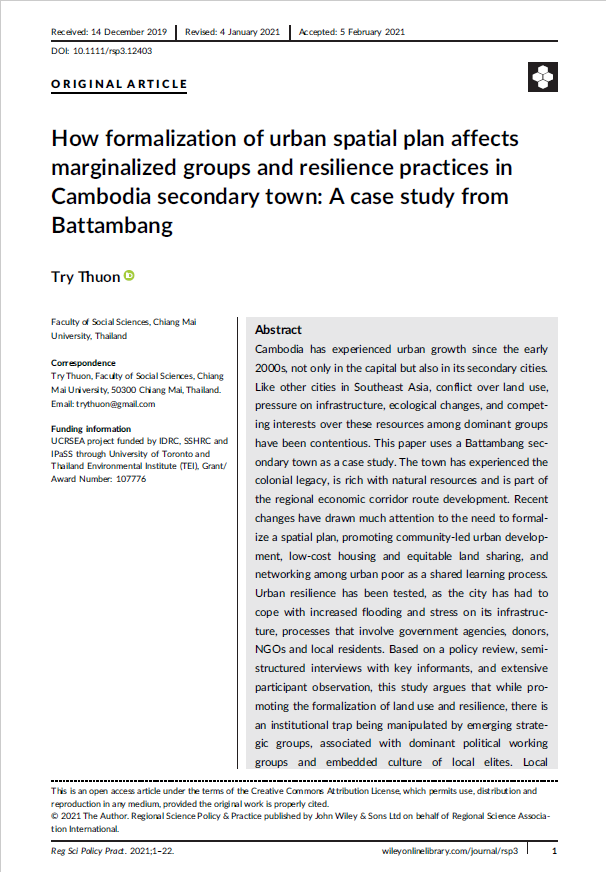
This paper uses a Battambang secondary town as a case study. Based on a policy review, semi‐structured interviews with key informants, and extensive participant observation, this study argues that while promoting the formalization of land use and resilience, there is an institutional trap being manipulated by emerging strategic groups, associated with dominant political working groups and embedded culture of local elites. Local knowledge has been adopted by certain groups, known as “subordinate,” in demanding social justice, equity distribution and promoting shared learning among social groups at the communities.